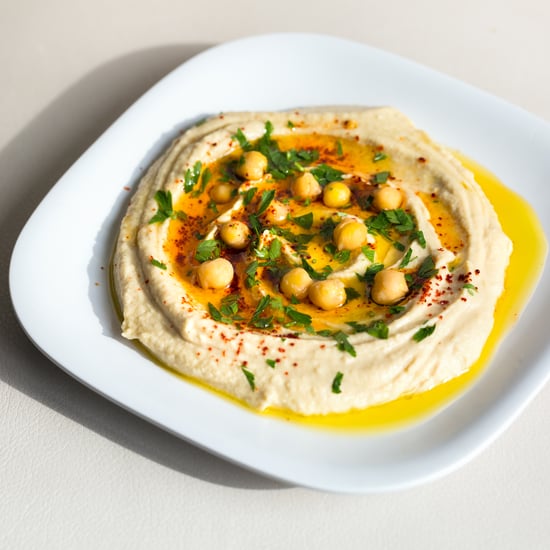What Are Probiotics?
You Keep Hearing About Probiotics, but Should You Actually Be Taking Them? Experts Weigh In

We're just now learning how important your gut is for your overall health, and by we, I don't just meant us over here in mainstream fitness. "It's really an emerging field," said Christopher Gardner, PhD, director of nutrition services at the Stanford Prevention Research Centre. There's a lot we don't know about the intricate world of your gut, and much of it has to do with bacteria — the "good kind," also known as probiotics.
What Are Probiotics?
"Probiotics are live bacteria and yeasts that are good for you, especially the digestive system," said Niket Sonpal, MD, a board-certified gastroenterologist in New York City and an adjunct assistant professor at Touro College of Medicine.
Bacteria? In your digestive system? You heard us right. Your gut bacteria are a part of your body's microbiome, which is all of the bacteria, fungi, protozoa, and viruses that live in or on your body. That sounds a little disturbing, but it's normal: many of these microorganisms do important and positive work within your body, especially in your gut. The microorganisms that reside there, also called the gut flora or microbiota, are comprised of up to a thousand different kinds of microorganisms, mostly bacteria, but also yeasts and viruses. Your gut flora play a major role in your overall health, synthesizing some vitamins and contributing to your body's immune system and metabolic functions, among other potential benefits.
So where do probiotics come in? "Your body is full of bacteria, both good and bad," Dr. Sonpal explained. "Probiotics are often referred to as 'good' or 'helpful' bacteria, because they help keep your gut healthy." Of course, they have to compete with the 1,000 other bacteria species in your gut, he said, which is why many people choose to take probiotic supplements or eat probiotic-rich foods to make sure they're keeping up that population of good bacteria.
Do I Need to Take Probiotics?
Yes, you should definitely add probiotics to your diet, Dr. Gardner said. Fermented foods are good sources of them, including:
- Yoghurt
- Kombucha
- Sauerkraut
- Kimchi
- Kefir
The more diverse the sources, and the more often you eat them, the better, Dr. Gardner added. "Most of [the probiotics] actually don't take up residence" in your gut, he explained. "They work as they're passing through your digestive tract." He recommended consuming some source of probiotics every day.
What about probiotic supplements? Dr. Gardner said there's too little research yet to be able to recommend them for general gut health. Most supplements only offer one or two different strains of bacteria, and doctors don't currently have a way to know if those are the exact strains your body really needs. It's best to "enhance the diversity and capacity of your gut" overall, Dr. Gardner said, which you can do by eating a variety of fermented foods, including the ones above.
Probiotics or Prebiotics?
Despite having almost exactly the same name (whose idea was that?), probiotics and prebiotics serve different, albeit interconnected, purposes in your body. In contrast to probiotics, which are beneficial types of bacteria, prebiotics are fibre-rich foods. Once ingested, prebiotic fibre is fermented in your colon, Dr. Sonpal told POPSUGAR. That process "feeds" your probiotic bacteria and helps to increase the number of that desirable bacteria in your gut.
"Try to imagine that your gut is a garden," Dr. Sonpal suggested. "Probiotic bacteria are the seeds in the garden, [while] the prebiotic fibre is the water and fertilizer that helps the seeds to grow and flourish."
How Do I Eat Probiotics For a Healthier Gut?
For a healthier gut, Dr. Gardner's recommendation is to eat a diverse diet that's rich in fermented foods (for probiotics) and fibre-full foods (as prebiotics) to keep those probiotics healthy in your gut. He recommended sources of fibre like vegetables, fruits, beans, and whole grains; here are more fibre-rich foods to incorporate into your diet.
Especially as research continues, he said it's best to stick to natural sources of probiotics in your food rather than supplements, to ensure you're promoting probiotic diversity in your gut. And keep tabs on the health news cycle; we're learning more and more about probiotics and the crucial role of gut health every year.







